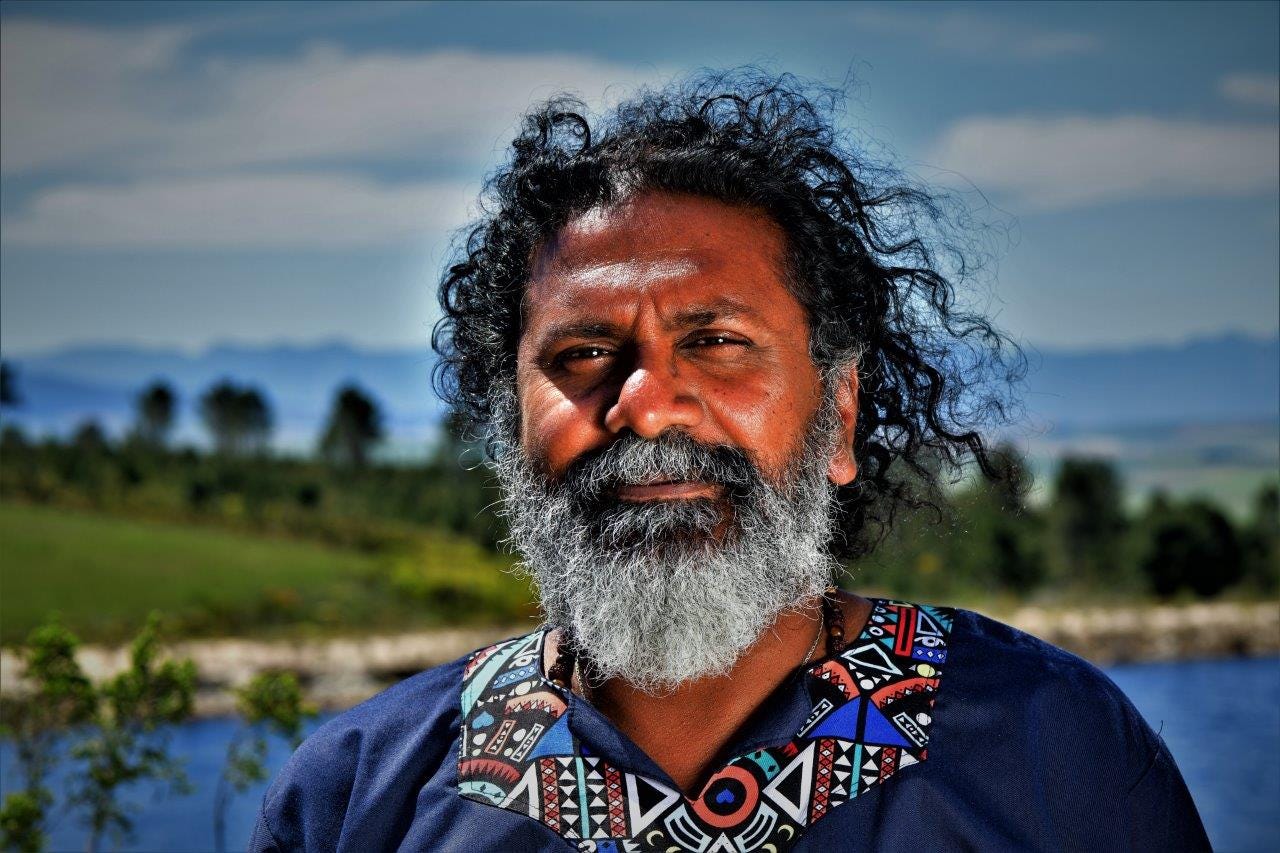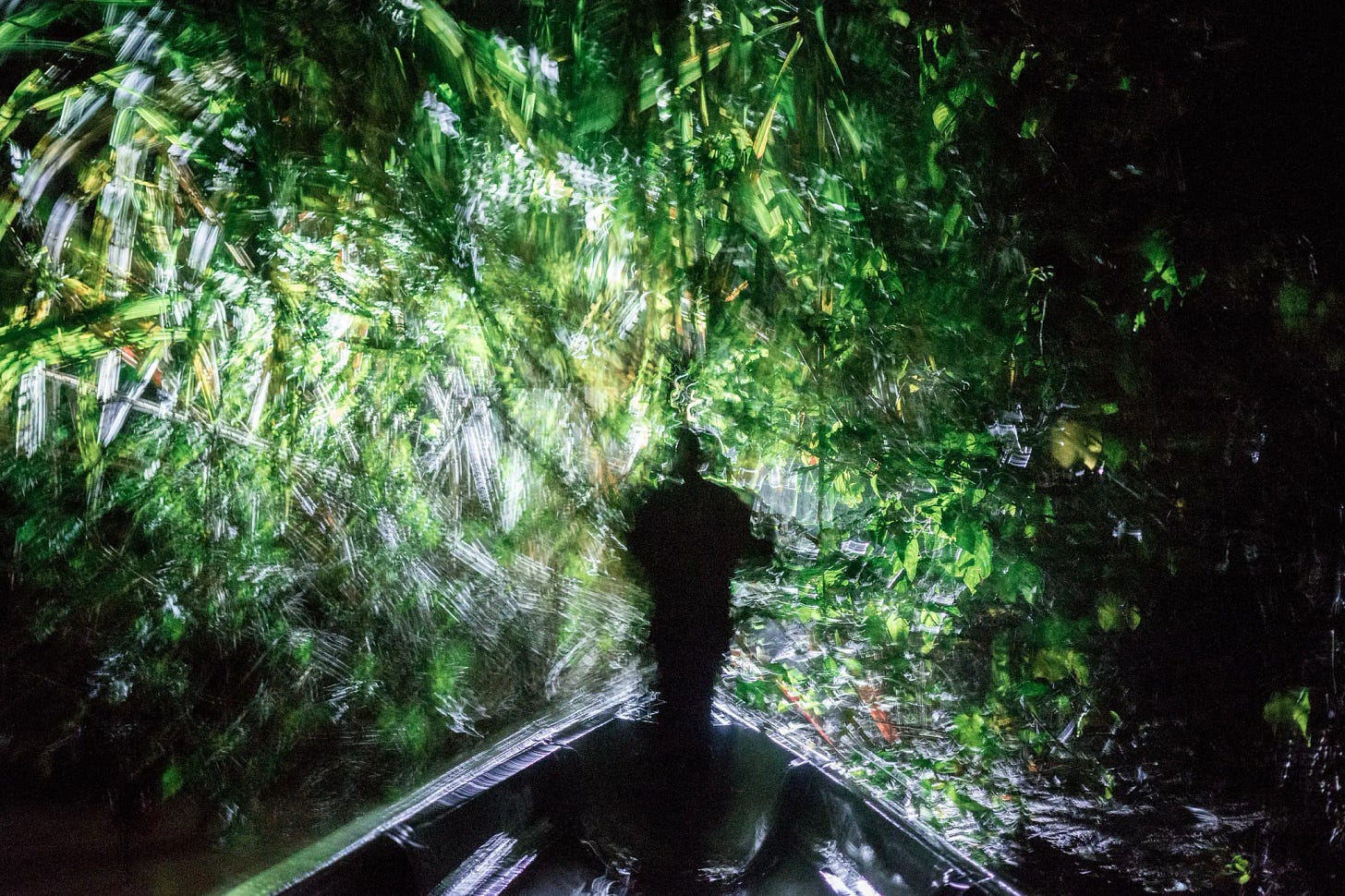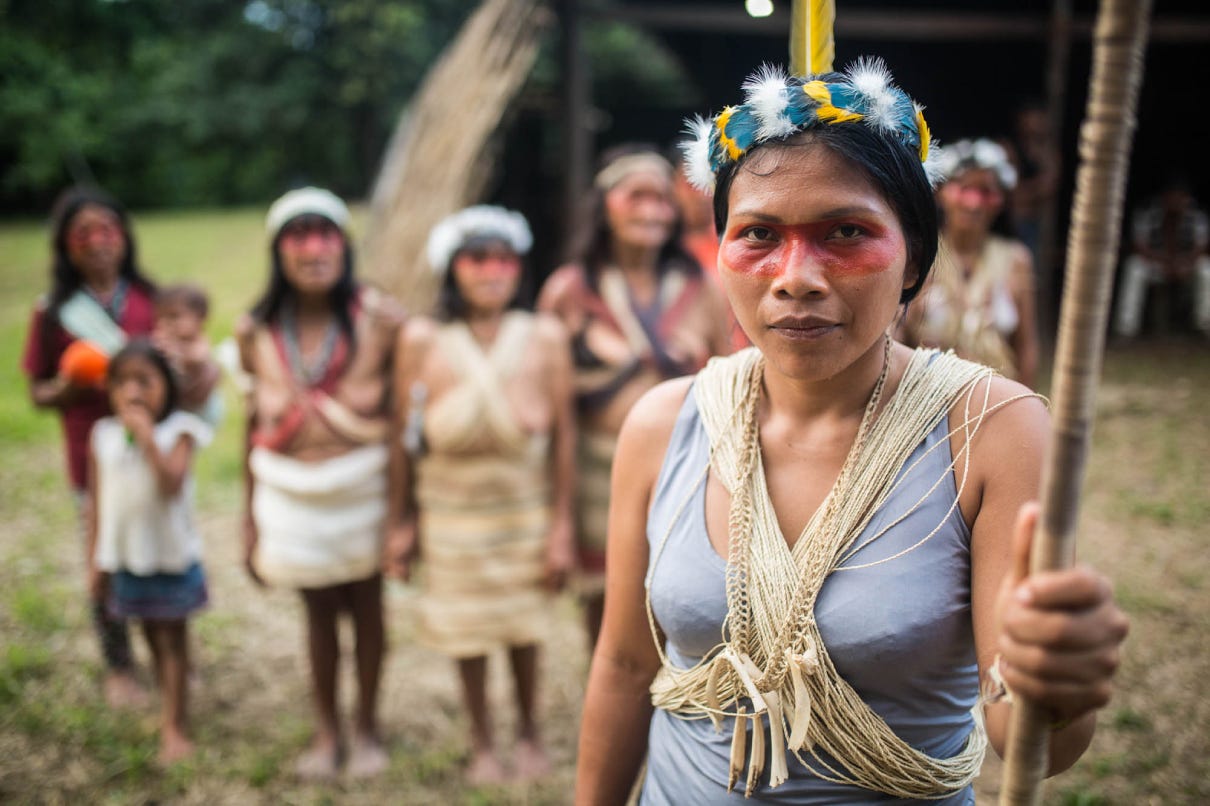Slow Down and Listen to Nature with Environmental Lawyer, Pooven Moodley
Making an Impossible Future Possible, by Defending the Rights of Nature.
Pooven Moodley is an international human rights and environmental lawyer from South Africa. He has dedicated his career to representing indigenous and local communities in their determination to halt the violation of rights and the destruction of their territories. Working across various collectives and coalitions, his collaborative approach to Earth Justice has yielded groundbreaking outcomes. We are honored to have him share his wisdom as a member of the board at the Institute of Natural Law.
INL: Your pivotal role in securing the 2022 United Nations vote to establish “a clean, healthy, and sustainable environment”; as a universal human right is impressive.
What specific evidence did you present to support this groundbreaking declaration?
Pooven: The introduction of a new human right by the UN marks a highly significant step, particularly in the current era of rapid global transitions and tipping points. The primary rationale behind this development is rooted in ancient wisdom that emphasizes the interconnectedness of all things. Specifically, it addresses the interdependence of the environment and human rights, bringing them into cohesive alignment. For instance, in the Futures case in Colombia, the argument underscored the necessity of protecting the Amazon from logging and mining, while simultaneously respecting the rights of the first nations people living there who actively safeguard the region.
Although some national legislations had previously enshrined the right to a healthy environment, the UN Charter and other fundamental human rights treaties of the twentieth century were largely silent on the matter, as they were formulated before environmental concerns gained significant attention.
The journey towards the UN's adoption of this human right began at the Stockholm Conference on Human Environment in 1972, evolving into a massive collective effort over the years. The past five years witnessed substantial momentum, with diverse contributions from community representatives, civil society organizations, the UN Special Rapporteur on Human Rights and the Environment, and certain national governments that collectively propelled the initiative forward.
On July 26, 2022, the UN General Assembly (UNGA) passed a resolution recognizing the right to a clean, healthy, and sustainable environment as a human right. This resolution, which reaffirmed earlier treaties articulating this principle, received unanimous approval with 161 votes in favor, including a notable positive vote from the United States. The adoption of this resolution marked a crucial advancement in reinforcing the international commitment to addressing the triple planetary crisis encompassing climate change, biodiversity loss, and pollution.
The adoption of this resolution marked a crucial advancement in reinforcing the international commitment to addressing the triple planetary crisis encompassing climate change, biodiversity loss, and pollution.
In December 2023, our coalition of organizations was honored to receive the UN Human Rights Award from the Secretary-General in recognition of our collective efforts to establish this new human right.1

INL: The 2022 landmark court ruling that halted Shell’s destructive oil exploration was a major victory for people across Africa and worldwide, who are advocating for a healthier planet and opposing polluting and destructive industries.
As Environmental lawyers strive to emulate this achievement, what would you say is the template for success and what were the final decisive factors that influenced the judge’s ruling in your favor?
Pooven: This was truly an epic David vs. Goliath battle. Shell had been granted permission to conduct seismic surveys for future oil and gas drilling along the East Coast of South Africa, encompassing a 6000 square kilometer block in marine protected areas and the wild coast region.
In a remarkably short span, we collaborated with communities along the coastline in South Africa. We assembled a group of lawyers to challenge Shell and the South African government. The urgency of the situation was heightened by the fact that the ship had already set sail from Cape Town, turning it into a race against the clock. Unfortunately, we lost the first urgent application case as the judge ruled that there was insufficient evidence to demonstrate harm to the ocean ecosystem and communities. He also cited potential financial losses for Shell if they did not proceed. Undeterred, we pursued a second case, presenting evidence from experts, including those from the affected communities. People from all walks of life mobilized at beaches across South Africa, Shell petrol stations, and even Shell's headquarters in Europe.
We employed standard legal arguments, emphasizing the lack of community consultation, inadequate environmental impact assessment, and the threats posed to the environment and the climate emergency. Additionally, we decided to incorporate an argument highlighting the spiritual and cultural connection that communities have not only to the land but also to the ocean, asserting that their ancestors reside in the ocean. Despite initial skepticism from Shell's lawyers, the three judges took this argument seriously, considering constitutional provisions and recognizing the profound importance of culture and spirituality to these communities. Ultimately, the judges ruled in favor of the communities. Shell has since appealed. This inspirational story has resonated with communities worldwide, and a documentary capturing this incredible journey has been produced.2
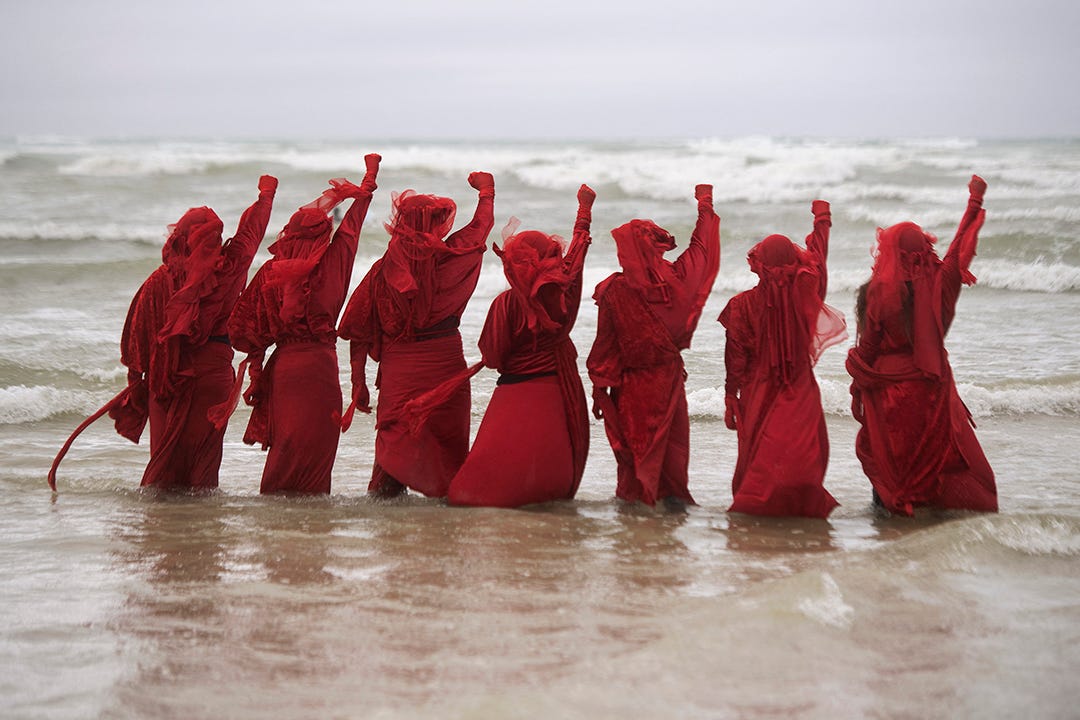
INL: For anyone new to the “Rights of Nature”, how would you explain the concept?
Pooven: We grew up in a world and system of domination and extraction. With the advent of industrialization and capitalism everything is viewed as a commodity, including people and their labour. As we accelerate on the journey of the 6th mass extinction, it becomes clear that we need to fundamentally shift the way we live on the planet as scientists in the climate reports and indigenous wisdom keepers have articulated.
So Rights of Nature or Earth Rights is a legal and jurisprudential theory that describes inherent rights as associated with ecosystems and species. There has been a growing number of court cases across the world where courts have given protection to rivers, mountains and forests for example. In Ecuador’s Amazon Forest the Kichwa people of Sarayaku are advocating for their indigenous rights and for the ‘Kawsak Sacha’ (Living forest). The idea is to push for legal recognition of the forest as a living and conscious being, endowed with universal rights.3
…the forest as a living and conscious being, endowed with universal rights.
The new Human Right to a clean, healthy and sustainable environment provided the interconnection between rights of nature and human rights.
INL: You are a part of the More Than Human Rights Project (MOTH), an emerging initiative of Earth Rights Advocacy at New York University School of Law.
As the rights of nature become acknowledged and head towards commonplace, how do you see this transforming the field and study of Environmental Justice and at what speed can we expect to see change?
Pooven: The environmental justice sector is rapidly developing in terms of rights and the law. The challenge is that this is up against a total onslaught both in terms of nature and people. Each strategic litigation case is a prolonged process, taking years to navigate through the courts. It necessitates governments and businesses to align with universal rights and actively contribute to preserving what remains to be protected.
Despite global climate conferences where governments negotiate, the primary driver often remains economic interests. Fossil fuel deals continue to be made, undermining the very purpose of these conferences, which is to find ways to safeguard ecosystems, biodiversity, and mitigate climate change.
We need to continue to push hard from the sense of stopping the harm caused. At the same time we need to look at the alternatives in terms of regenerative agriculture, clean and sustainable energy and curbing our consumption patterns. The environmental justice sector, alongside the broader human population, must slow down and listen to the ancient wisdom that is coming to the forefront.
The More Than Human Rights Initiative provides a platform and nexus for people to share exciting alternative thinking and initiatives. It bridges ancient wisdom keepers, with those employing modern technology, uniting human rights and environmental lawyers with journalists. MOTH brings us together under a shared mission of Earth Justice, emphasizing the importance of collective action and collaboration in shaping our future.
INL: In many cases, environmental destruction happens before frontline communities become aware of it and local authorities are forced to respond.
How can we hold corporations and governments accountable for violations against the rights of nature?
Pooven: Communities worldwide have increasingly lost faith in governments' ability to protect both them and their ecosystems, leading to a growing trend of seeking legal recourse. To enhance accountability of governments and businesses, several measures can be implemented:
Government Reforms: Governments need to adopt appropriate constitutional, legislative and policy reforms as well as strengthening capacity to scale-up efforts to ensure a healthy environment for all. This includes the establishment of monitoring mechanisms to track progress in areas under scrutiny.
National Human Rights Institutions (NHRIs): NHRIs play a crucial role in monitoring and reporting on the human rights impacts of climate change. They provide rights-based advice to governments, facilitate access to justice and redress for victims, empower communities to participate in decision-making, and disseminate education on the human rights impacts of climate change and related policies.
Corporate Responsibility: Businesses bear the responsibility to respect human rights, and national legal frameworks should provide victims of corporate abuses with access to effective remedies. The UN Guiding Principles on Business and Human Rights outline the minimum duties of states in relation to human rights. States, particularly concerning environmentally impactful activities, must ensure that businesses conduct thorough environmental and human rights impact assessments.
Support for Defenders: It is essential to support environmental and human rights defenders, with special attention to women environmental rights defenders. By backing their work, awareness is raised about the vital role they play in realizing the right for all to a healthy environment.
By implementing these measures, a more robust framework for accountability can be established, fostering a healthier and more sustainable relationship between communities, governments, and businesses.
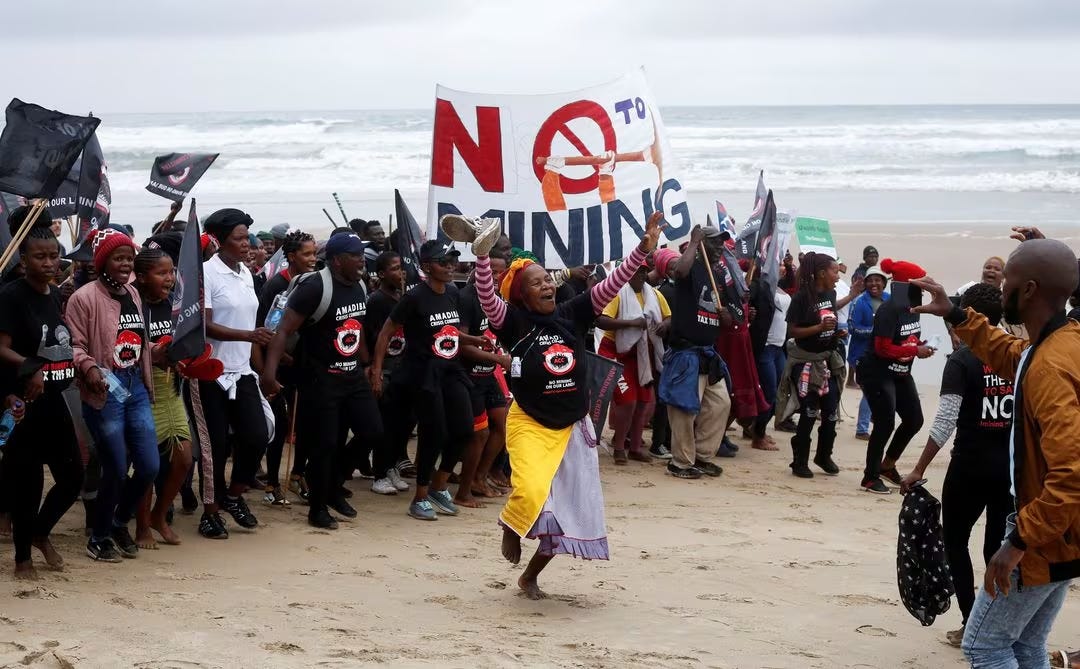
INL: As a board member for Digital Democracy, you contribute to their mission of supporting communities striving to protect their human and environmental rights but lacking the necessary tools to do so.
This organization provides earth defender communities with valuable digital tools to enhance their capabilities.
Can you share how these tools make a measurable impact?
Pooven: Digital Democracy engages with diverse indigenous communities globally, showcasing instances where technology is employed even in regions with unreliable internet connectivity, proving crucial for territory protection.
Combining ancient wisdom with modern tools is very powerful.
One notable collaboration involves Digital Democracy working with the Waorani people in Ecuador — led by Nemonte Nenquimo, an indigenous campaign and legal action successfully secured a court ruling safeguarding 500,000 acres of Amazonian rainforest from oil extraction. This landmark decision establishes a legal precedent for indigenous rights in Ecuador. As part of this effort, they developed a tool named Mapeo, enabling the mapping of territories under threat. The information gathered through community-led mapping served as compelling evidence in court, reinforcing their case for the protection of their land.
INL: Throughout your career as an Environmental Lawyer, how has the concept of Natural Law shifted over time and have you noticed a recent resurgence in this term within the courtroom?
Pooven: For those interested in tracking Natural Law, I highly recommend a book by a comrade and fellow lawyer who worked on the Shell case. The book is called "Wild Law: A Manifesto for Earth Justice" by Cormac Cullinan.
There have been numerous developments over the decades in how environmental law and the rights of nature have been shaped, both within the legal framework and in courtrooms. Momentum is evident, with over 150 national constitutions now having provisions and protections for a healthy environment. There has been a surge in cases recognizing the rights of nature. The most recent development of the new human right to a clean, healthy, and sustainable environment finally intertwines human rights and environmental protection.
So, if the land, rivers, oceans, and air are being poisoned, the actions are to halt environmental destruction and simultaneously put an end to human rights violations. Poisoning a river means violating the rights of the river, and as people need the water to survive, it constitutes a violation of human rights.
INL: Any final thoughts you wish to share?
Pooven: Throughout the centuries, many activists have made significant strides in terms of human rights and the protection of the planet. We are now in a time when various struggles intersect, including conflicts, race, patriarchy, the climate crisis, biodiversity loss, and the fight for our survival as humanity.
It is clear that we are on a trajectory of destruction. Our ‘leaders’ continue to take us in a direction which does not serve humanity or the rest of nature. It is time to slow down and listen to nature and what ancient wisdom keepers are saying. We have the potential to write a new story to shift the current trajectory.
As Nelson Mandela once said ‘It is in our hands’ emphasizing that the power to reshape our path lies within our collective actions, ‘it always seems impossible until it is done.’
The UN just declared a new human right, Aug 9, 2022.
Wild Coast Warriors, the documentary film about the David and Goliath court-case struggle against Shell. Local communities succeeded in halting oil / gas exploration, winning ongoing protection for their ocean and culture.
Explore Sarayaku with this interactive platform created by audio visual storyteller, Misha Vallejo or read The jungle is a living, intelligent and conscious being with José Gualinga Montalvo.





